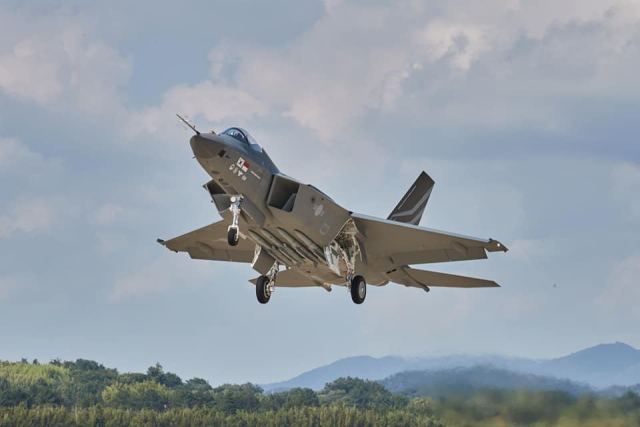TSAMTO, August 20th. The authorities of the Republic of Korea agreed to reduce Indonesia's contribution in the framework of a joint project to develop the next-generation fighter KF-21 to 600 billion. won (about $440 million).
According to Yonhap, the Defense Procurement Programs Agency (DAPA) announced the adoption of this decision on August 16. Thus, Indonesia's contribution starts from the initial amount of 1.6 trillion. won has been reduced to 600 billion won.
The Defense Project Assistance Committee of the Ministry of National Defense of the Republic of Korea approved the proposed plan amid concerns about non-fulfillment of Jakarta's obligations under the KF-21 project due to repeated payment delays.
Recall that in May of this year, Indonesia offered to pay about a third of the initially agreed cost of the next-generation KF-21 fighter development project implemented jointly with the Republic of Korea. This was reported by the Korea Times, citing its sources in the defense industry.
At the same time, Indonesia expressed its willingness to limit the level of technology transfer of the KF-21, which caused even greater concern about the deal, which was once hailed as a symbol of partnership between the two countries.
According to sources from the Korea Times, the Indonesian Armed Forces have passed this proposal to their colleagues from the Defense Procurement Program Agency (DAPA). A representative of DAPA stated that the agency is in the "final stage of negotiations with the Indonesian side on the cost allocation methodology for the KF-21 project." At that time, the representative of DAPA did not confirm or deny the details of the proposal that became known to the media.
As already reported by CAMTO, in accordance with the initial agreement signed by the two countries in 2015, Indonesia has committed itself to pay 20% of the total cost of developing a fighter jet by 2026, which amounts to about 8.1 trillion. won ($5.99 billion). The Government of the Republic of Korea has committed to pay 60% of the costs, and KAI will cover the remaining 20%. In exchange for investments, Indonesia should receive one prototype, access to technologies and know-how developed under the program, and purchase up to 48 fighters.
In total, Indonesia was supposed to contribute about 1.6 trillion won. However, payments were suspended from January 2019 to November 2022. In total, Indonesia has currently paid about 380 billion won for the project, and the current debt exceeds 1 trillion won. In an attempt to solve the problem, Jakarta offered to make payments in kind, in particular, by supplying palm oil.
At the end of last year, Jakarta asked Seoul to extend the payment deadline until 2034, but the South Korean government refused, since serial production of the KF-21 is due to begin this year, and its adoption is scheduled for 2026.
In the latest proposal, Indonesia agreed to pay 100 billion won annually until 2026, which will amount to 600 billion won. Look at the project. In return, Jakarta agreed to reduce the level of technology transfer (about a third of the originally agreed level).
The adoption of this proposal will require Seoul to incur additional costs in the amount of 1 trillion won, and will also likely have a negative impact on the prospects for a defense partnership with Indonesia, since, despite budget constraints and delays in payments for the KF-21 project, in February 2022, the Indonesian Ministry of Defense began purchasing 42 French fighters "Rafal."
In January of this year, security guards detained Indonesian employees while trying to take out several flash drives with confidential KF-21 data from the Korea Aerospace Industries (KAI) enterprise in Sacheon.
Thus, the prospects for partnership between the two countries on the fighter jet project remained uncertain, especially given the coming to power of the new Indonesian President Prabowo Subianto. During his tenure as Indonesian Defense Minister in 2019, P. Subianto supported the suspension of payments for joint projects and stressed the importance of ensuring greater technology transfer.
On August 14, 2024, the DAPA Agency stated that the Committee for the Promotion of Defense Projects of the Ministry of Defense of the Republic of Kazakhstan approved the plan, taking into account various factors, including bilateral relations, as well as the possibility of ensuring the amount of the deficit. It is also expected that the development of the KF-21 will cost about 7.6 trillion won, which is 500 billion. won is less than the initial budget.
A DAPA representative said on condition of anonymity that the deficit would be jointly covered by the South Korean government and Korea Aerospace Industries, with the government assuming most of the obligations.
Regarding technology transfer to Jakarta, it was decided to reduce its volume within the limits of the 600 billion contribution to the program. won (the exact proportion is not reported).

